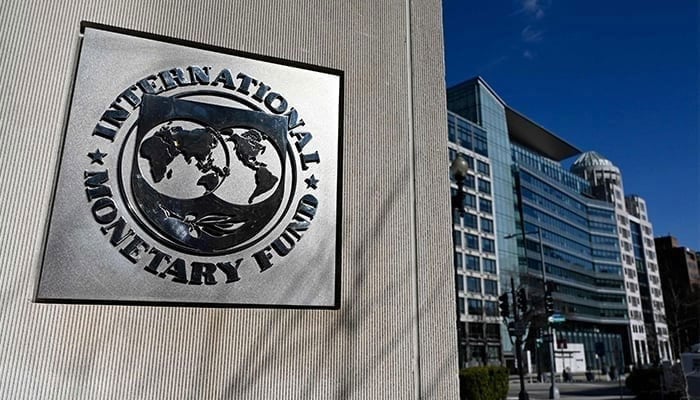Inflation dilemma
IMF will closely watch the privatization of PIA by the end of June
LAHORE: There are many issues that need to be addressed. These are linked to the formal approval of the $6-8 billion program that Pakistan is seeking. Coalition partners are not on the same page regarding ways to address these issues.
The IMF will closely watch the privatization of PIA by the end of June. The privatization has already been delayed. The monetary policy of the central bank will also come under IMF scrutiny. Finance Minister Muhammad Aurangzeb has stated that the process of privatizing PIA will be finalized by the end of June or early July, with Islamabad airport potentially following suit shortly after.
The finance minister categorically declared that the government has no business being in business, while explaining the government’s plan to divest from state-owned enterprises (SOEs). This shows that the minister is well aware that the IMF would not be satisfied by the privatization of PIA only, and progress on privatization would be shown to the IMF before the release of each quarterly tranche of the new program. The Peoples Party, the second largest coalition partner, opposes the privatization of many state-owned enterprises, including PIA.
The State Bank of Pakistan has been holding its policy rate at 22 percent for almost a year to contain inflation. Inflation has started easing in the past two months, yet the bank maintained a high policy rate. The decline in inflation has been slow because of periodic increases in power and energy rates. The next monetary committee meeting is next Monday. This time, almost all experts expect the central bank to decrease the policy rate by 100 basis points. This small adjustment might be acceptable to the IMF, but the business and industry sectors would be disappointed.
The unfortunate reality in Pakistan is that inflation in the country is not based on general monetary policy principles. Usually, inflation goes up during high growth because of brisk economic activities, and the central bank jumps in to increase the monetary policy rate to tame inflation. In Pakistan, inflation got out of control during an acute recession when generally demand and prices went down. Prevailing inflation is because of high government borrowing, a huge decline in rupee devaluation, regular increases in power and energy rates, and high rates of all import-based products.
Interestingly, the IMF has not asked the government to reduce the share of provinces in the NFC award. Instead, it has asked the federal government to strengthen the delivery mechanisms in the provinces. Obviously, the IMF believes that provinces, through local governments, could serve better at the grassroots level. But the federal government is not satisfied with its share in the NFC and wants the provinces' shares to be curtailed. However, there is strong resistance to this proposal from most of the provinces. In fact, under the constitution, the share of provinces in the NFC cannot be reduced, and on any new award, the share has to be increased. This is the reason that the new NFC award has not been reached.
The federal government is now trying to impose those taxes only in which it is not bound to share with the provinces. These include central government levies like petroleum levies. In fact, it reduced the sales tax on petroleum to zero and increased the petroleum levy instead. Now, the IMF wants the sales tax re-imposed. Would the government comply, or convince the IMF to increase the petroleum levy instead, or the federal excise duty that is also not shared with the provinces?"
-
 Winter Olympics 2026: When & Where To Watch The Iconic Ice Dance ?
Winter Olympics 2026: When & Where To Watch The Iconic Ice Dance ? -
 Melissa Joan Hart Reflects On Social Challenges As A Child Actor
Melissa Joan Hart Reflects On Social Challenges As A Child Actor -
 'Gossip Girl' Star Reveals Why She'll Never Return To Acting
'Gossip Girl' Star Reveals Why She'll Never Return To Acting -
 Chicago Child, 8, Dead After 'months Of Abuse, Starvation', Two Arrested
Chicago Child, 8, Dead After 'months Of Abuse, Starvation', Two Arrested -
 Travis Kelce's True Feelings About Taylor Swift's Pal Ryan Reynolds Revealed
Travis Kelce's True Feelings About Taylor Swift's Pal Ryan Reynolds Revealed -
 Michael Keaton Recalls Working With Catherine O'Hara In 'Beetlejuice'
Michael Keaton Recalls Working With Catherine O'Hara In 'Beetlejuice' -
 King Charles, Princess Anne, Prince Edward Still Shield Andrew From Police
King Charles, Princess Anne, Prince Edward Still Shield Andrew From Police -
 Anthropic Targets OpenAI Ads With New Claude Homepage Messaging
Anthropic Targets OpenAI Ads With New Claude Homepage Messaging -
 US Set To Block Chinese Software From Smart And Connected Cars
US Set To Block Chinese Software From Smart And Connected Cars -
 Carmen Electra Says THIS Taught Her Romance
Carmen Electra Says THIS Taught Her Romance -
 Leonardo DiCaprio's Co-star Reflects On His Viral Moment At Golden Globes
Leonardo DiCaprio's Co-star Reflects On His Viral Moment At Golden Globes -
 SpaceX Pivots From Mars Plans To Prioritize 2027 Moon Landing
SpaceX Pivots From Mars Plans To Prioritize 2027 Moon Landing -
 J. Cole Brings Back Old-school CD Sales For 'The Fall-Off' Release
J. Cole Brings Back Old-school CD Sales For 'The Fall-Off' Release -
 King Charles Still Cares About Meghan Markle
King Charles Still Cares About Meghan Markle -
 GTA 6 Built By Hand, Street By Street, Rockstar Confirms Ahead Of Launch
GTA 6 Built By Hand, Street By Street, Rockstar Confirms Ahead Of Launch -
 Funeral Home Owner Sentenced To 40 Years For Selling Corpses, Faking Ashes
Funeral Home Owner Sentenced To 40 Years For Selling Corpses, Faking Ashes




